
“I always put pressure on myself to find healthy food for people in need, and I’m always afraid we’re going to run out,” Dana Van Daele, Community Food Share's Resource and Compliance Manager, told me over the phone last Friday. “Even though we never do,” she added.
Community Food Share is one of five food banks in the state of Colorado and the only one that serves both nonprofits and individuals, all at no cost. In total, CFS supplies 41 local nonprofits and between 400 and 700 families every week across the Boulder and Broomfield counties.
CFS’ supply chain model is similar to that of The Farmlink Project: their main source of food is the eleven tons of produce and nonperishables they rescue from supermarkets each day. In addition, they have an active partnership with Feeding America to source produce from outside of Colorado and have received donations of food boxes from farmers paid through the USDA Food Box program. On Tuesday, The Farmlink Project facilitated the delivery of 43,000 pounds of potatoes from Mountain Valley Farm in Colorado to CFS.
Since the onset of the COVID-19 pandemic, Dana noted a 60 percents increase in demand for services. Much of this demand they can satisfy through USDA Food Box donations, enabling CFS to operate “Saturday produce pop-up markets.” Every Saturday, CFS sets up a temporary distribution center in four locations, switching this location every week to broaden their coverage of different communities. Dana and her team have also been creative in their fundraising, using an online food donation service in lieu of biannual canned food drives.
However, COVID-19 has forced CFS to alter their distribution model. Whereas before the pandemic, individuals could “shop” for food in the food bank, CFS has taken to distributing produce in pre-packaged food boxes in a drive-through.
With both creativity and help from governmental programs, CFS has managed to meet the heightened demand resulting from the COVID-19 pandemic in a “supportive, energetic, and passionate” environment, as Dana put it. The Farmlink Project is proud to partner with CFS and other food banks in this process.
< Back

“I always put pressure on myself to find healthy food for people in need, and I’m always afraid we’re going to run out,” Dana Van Daele, Community Food Share's Resource and Compliance Manager, told me over the phone last Friday. “Even though we never do,” she added.
Community Food Share is one of five food banks in the state of Colorado and the only one that serves both nonprofits and individuals, all at no cost. In total, CFS supplies 41 local nonprofits and between 400 and 700 families every week across the Boulder and Broomfield counties.
CFS’ supply chain model is similar to that of The Farmlink Project: their main source of food is the eleven tons of produce and nonperishables they rescue from supermarkets each day. In addition, they have an active partnership with Feeding America to source produce from outside of Colorado and have received donations of food boxes from farmers paid through the USDA Food Box program. On Tuesday, The Farmlink Project facilitated the delivery of 43,000 pounds of potatoes from Mountain Valley Farm in Colorado to CFS.
Since the onset of the COVID-19 pandemic, Dana noted a 60 percents increase in demand for services. Much of this demand they can satisfy through USDA Food Box donations, enabling CFS to operate “Saturday produce pop-up markets.” Every Saturday, CFS sets up a temporary distribution center in four locations, switching this location every week to broaden their coverage of different communities. Dana and her team have also been creative in their fundraising, using an online food donation service in lieu of biannual canned food drives.
However, COVID-19 has forced CFS to alter their distribution model. Whereas before the pandemic, individuals could “shop” for food in the food bank, CFS has taken to distributing produce in pre-packaged food boxes in a drive-through.
With both creativity and help from governmental programs, CFS has managed to meet the heightened demand resulting from the COVID-19 pandemic in a “supportive, energetic, and passionate” environment, as Dana put it. The Farmlink Project is proud to partner with CFS and other food banks in this process.
Community Food Share
Colorado

“I always put pressure on myself to find healthy food for people in need, and I’m always afraid we’re going to run out,” Dana Van Daele, Community Food Share's Resource and Compliance Manager, told me over the phone last Friday. “Even though we never do,” she added.
Community Food Share is one of five food banks in the state of Colorado and the only one that serves both nonprofits and individuals, all at no cost. In total, CFS supplies 41 local nonprofits and between 400 and 700 families every week across the Boulder and Broomfield counties.
CFS’ supply chain model is similar to that of The Farmlink Project: their main source of food is the eleven tons of produce and nonperishables they rescue from supermarkets each day. In addition, they have an active partnership with Feeding America to source produce from outside of Colorado and have received donations of food boxes from farmers paid through the USDA Food Box program. On Tuesday, The Farmlink Project facilitated the delivery of 43,000 pounds of potatoes from Mountain Valley Farm in Colorado to CFS.
Since the onset of the COVID-19 pandemic, Dana noted a 60 percents increase in demand for services. Much of this demand they can satisfy through USDA Food Box donations, enabling CFS to operate “Saturday produce pop-up markets.” Every Saturday, CFS sets up a temporary distribution center in four locations, switching this location every week to broaden their coverage of different communities. Dana and her team have also been creative in their fundraising, using an online food donation service in lieu of biannual canned food drives.
However, COVID-19 has forced CFS to alter their distribution model. Whereas before the pandemic, individuals could “shop” for food in the food bank, CFS has taken to distributing produce in pre-packaged food boxes in a drive-through.
With both creativity and help from governmental programs, CFS has managed to meet the heightened demand resulting from the COVID-19 pandemic in a “supportive, energetic, and passionate” environment, as Dana put it. The Farmlink Project is proud to partner with CFS and other food banks in this process.
.png)

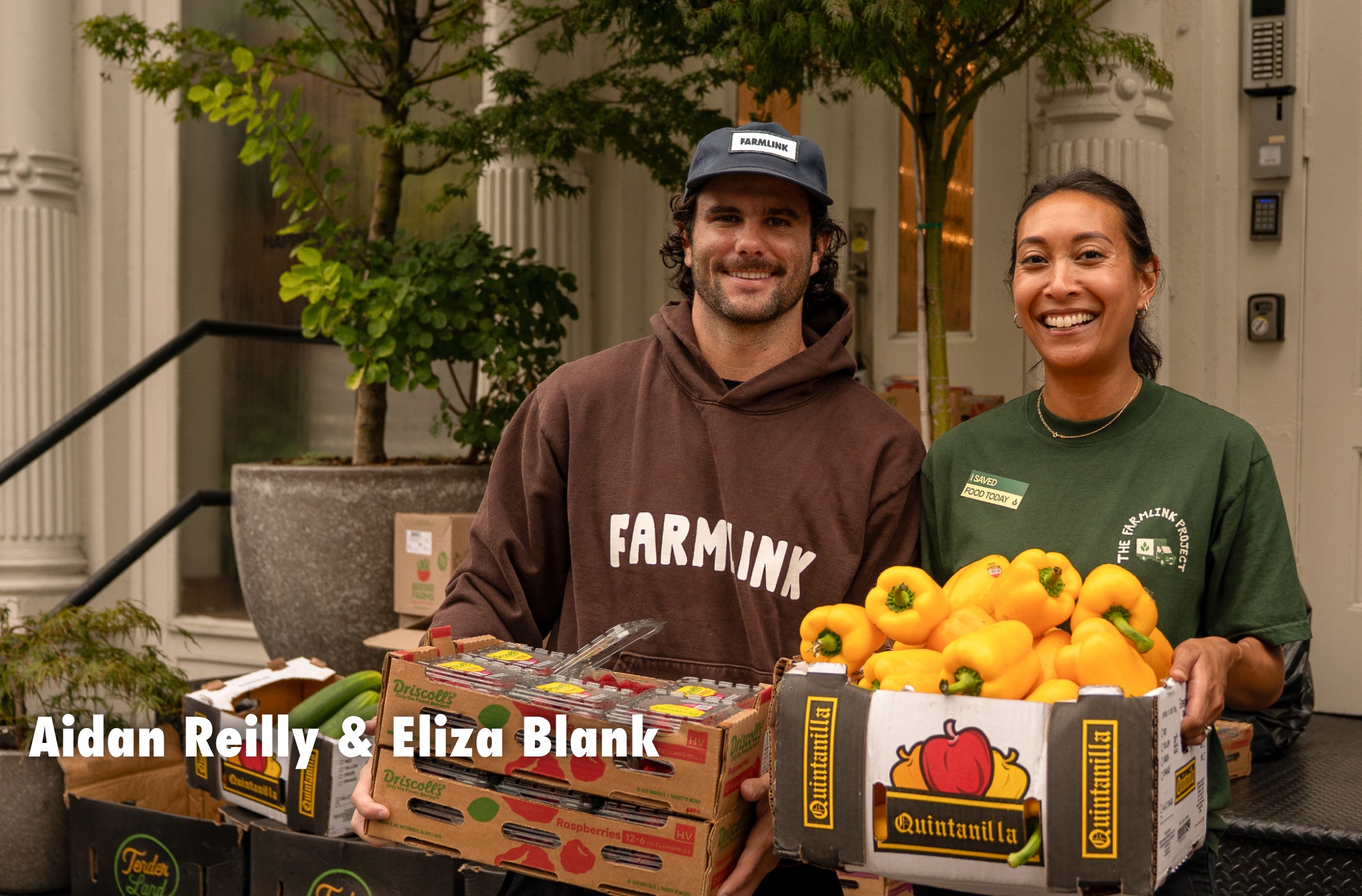
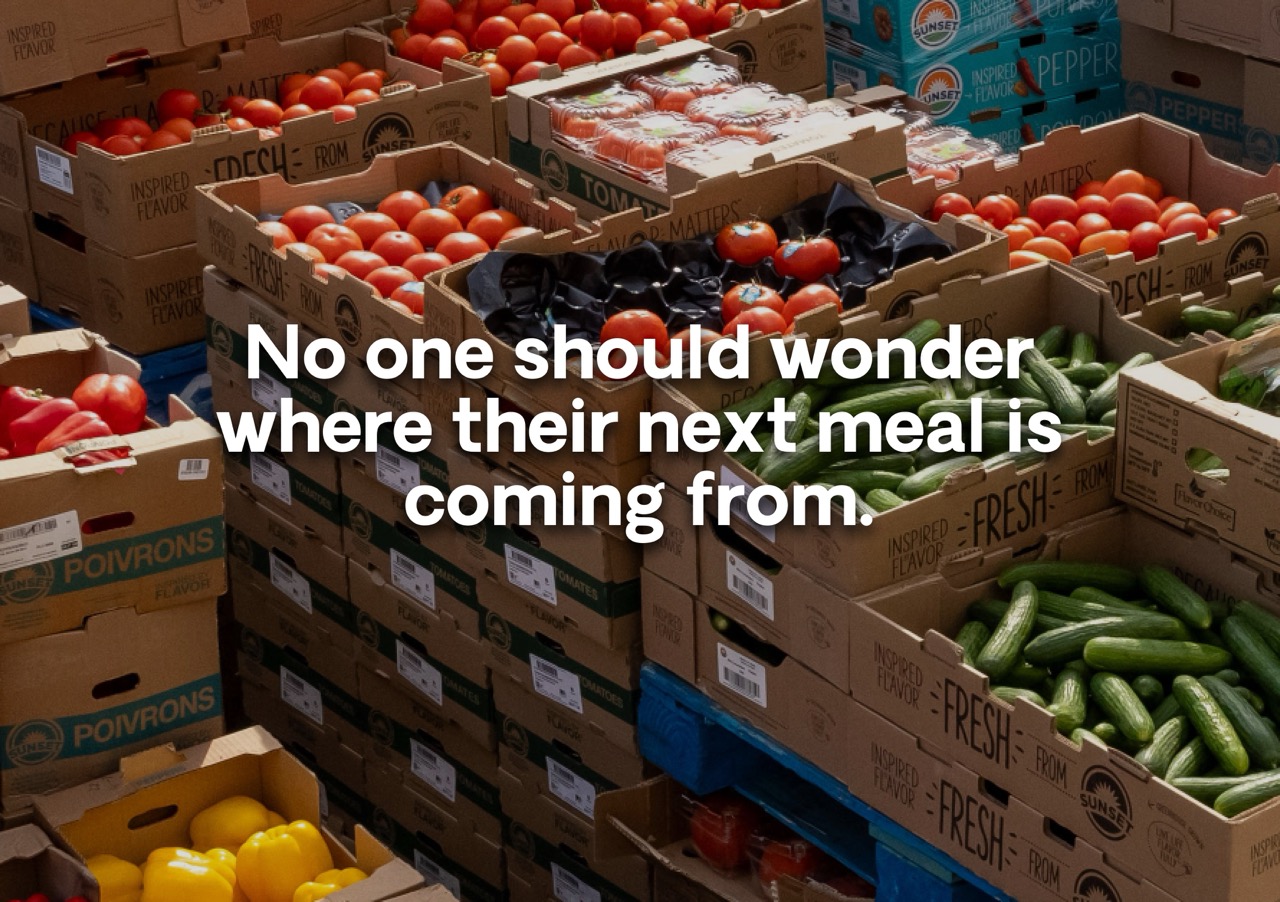
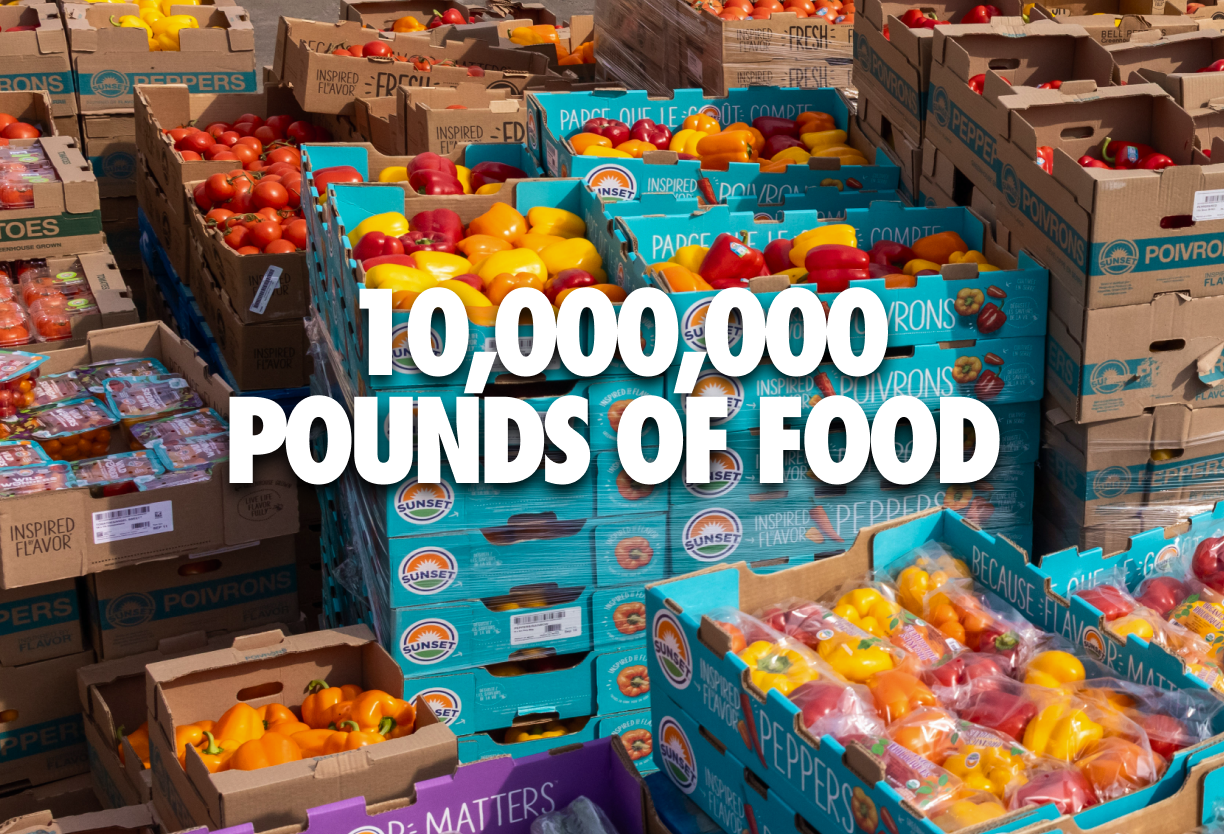

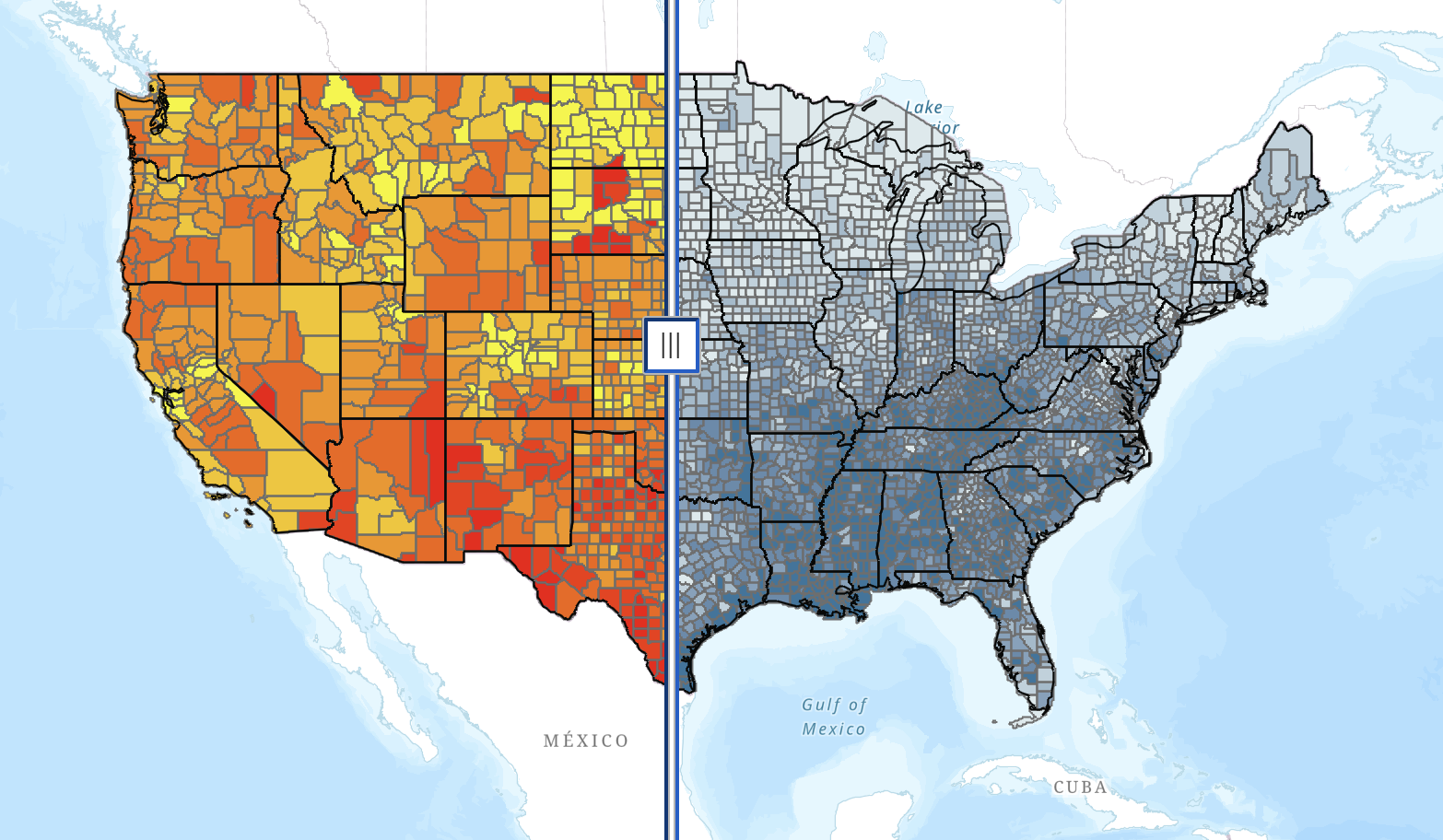
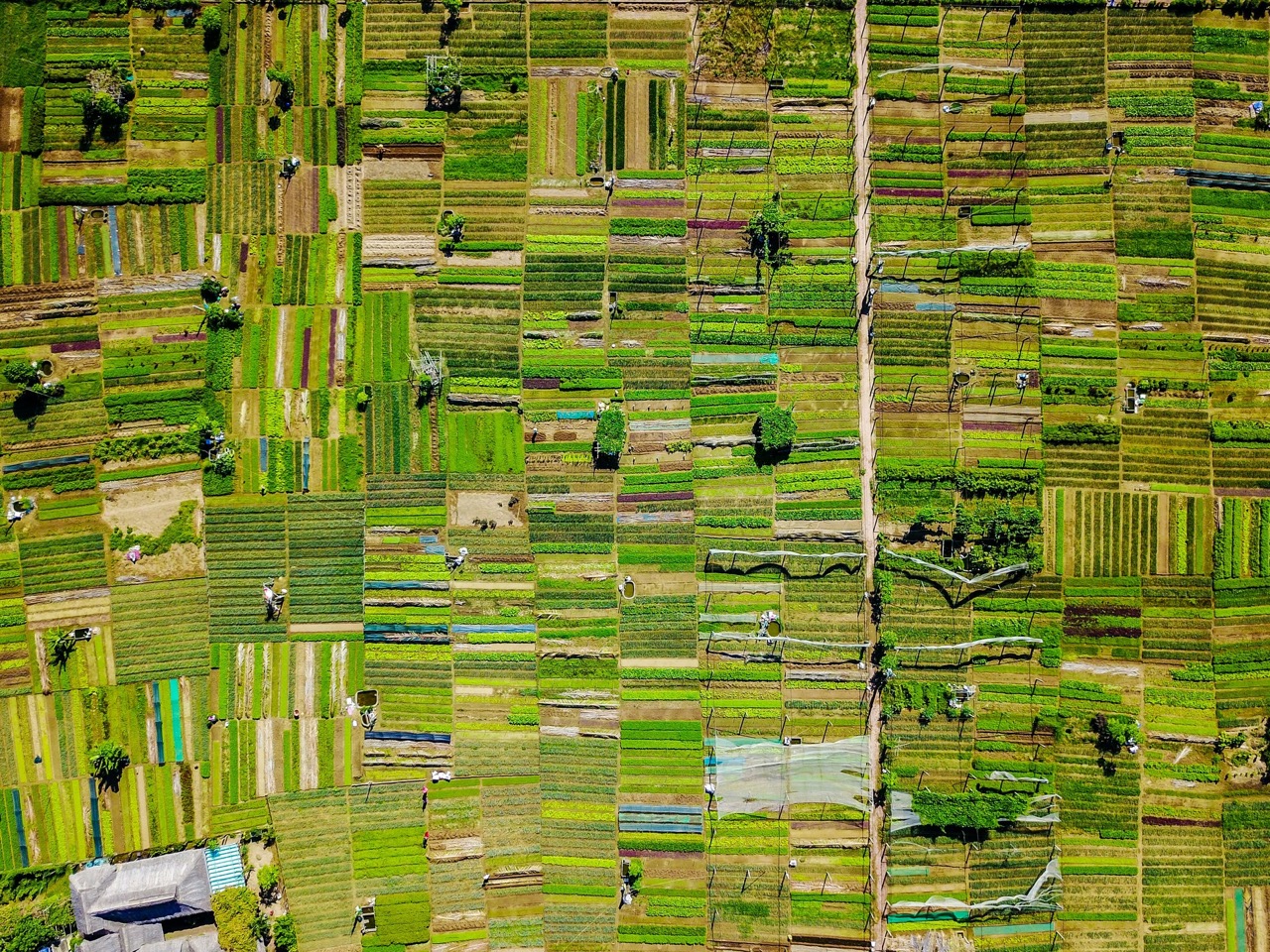
.svg)
.svg)
.svg)